
Real Science Behind Brain, Heart and Joint Health

Real Science Behind Brain, Heart and Joint Health

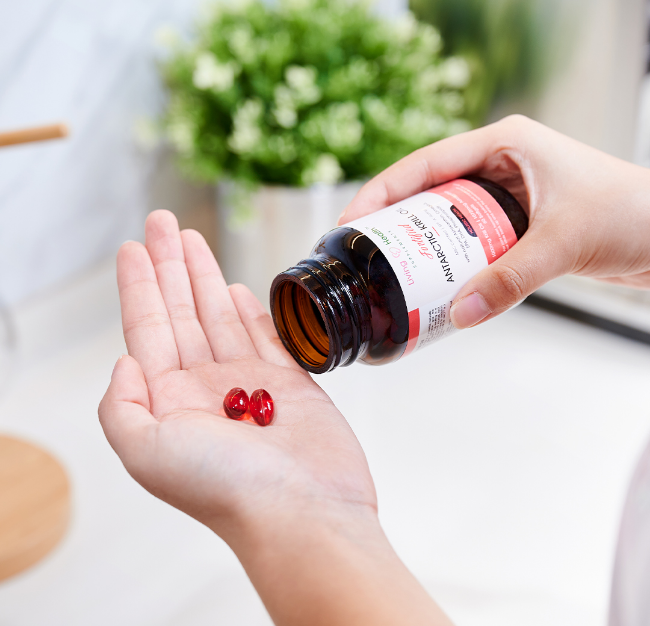
Omega-3 has been linked to various benefits, including improved brain function, reduced risk of heart disease, and decreased joint pain.
But not all Omega 3 is made equal.
There’s increasing research that proves Krill Oil may be superior to its famous cousin; Fish/salmon oil. With powerful antioxidants like Astaxanthin present, the body is able to function and repair on a much higher level.

INGREDIENT HIGHLIGHT
Astaxanthin
How It Works
Astaxanthin is a carotenoid pigment that is found in various marine organisms, including algae, salmon, and krill.
Astaxanthin, in our Fortified Antarctic Krill Oil (NKO™), has been shown to have several health benefits, including its ability to improve the absorption and performance of omega-3 fatty acids in the body.
It might come as a surprise to you, but many Omega-3 supplements you normally take, might not be efficiently used by the body, considering Omega-3 fatty acids’ poor bioavailability.
However, astaxanthin has been shown to improve the absorption of omega-3 fatty acids by enhancing the transport of these fatty acids across the intestinal wall and into the bloodstream.
What Makes It Special
Traditional triglyceride Omega-3 krill/fish oils have to sit on top of other stomach fluids, resulting in an unpleasant fishy reflux while waiting to be digested.
NKO™ does not have fishy aftertaste or burps because it is directly absorbed by the stomach.
As a next generation Omega-3 phospholipid product, NKO™ contains more krill oil concentrate with more Omega-3 fatty acids being delivered to tissues via more phospholipids high in choline. It is this combination of astaxanthin, phospholipids and choline that sets NKO™ apart.
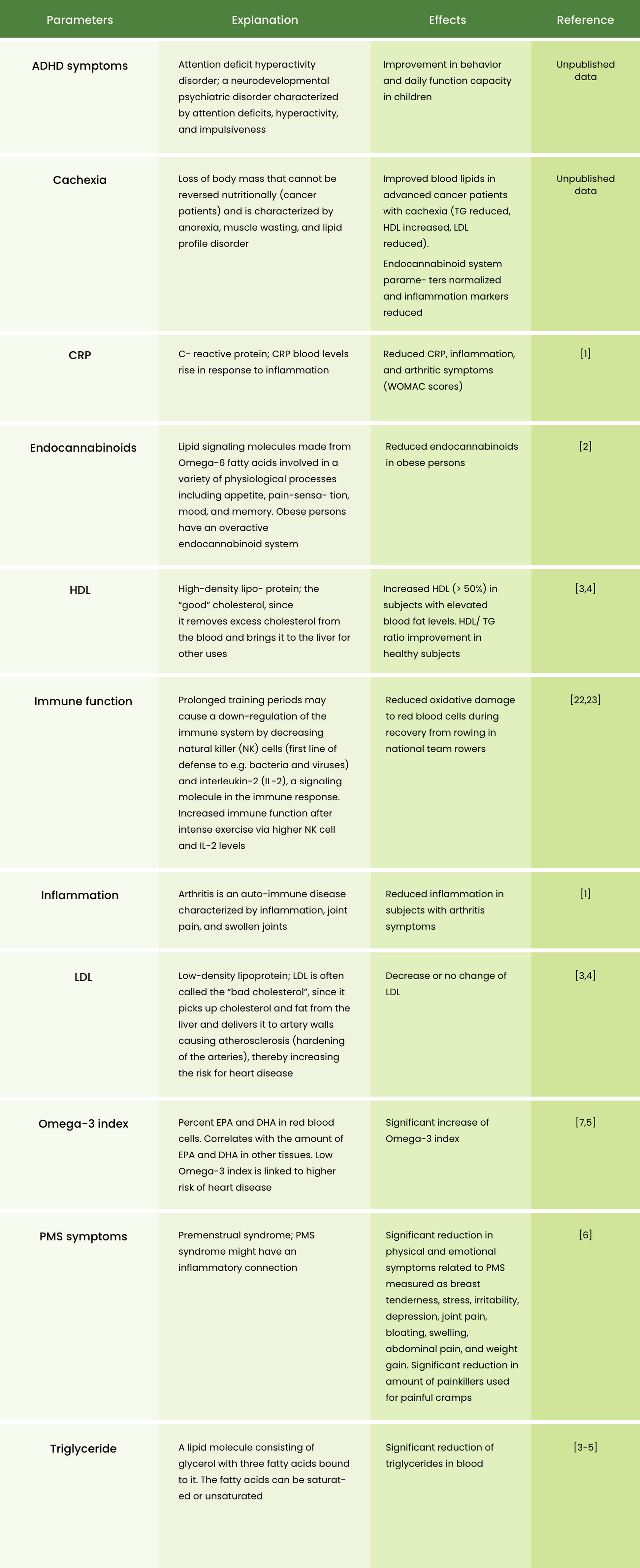

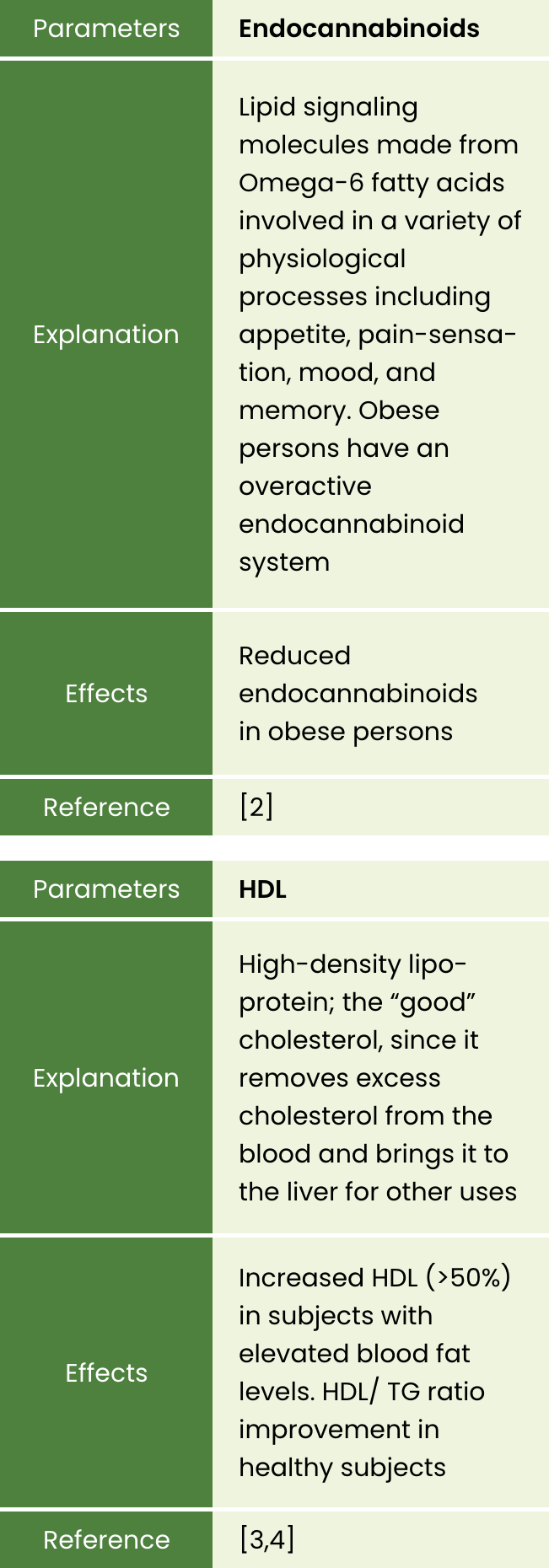



INGREDIENT HIGHLIGHT
Choline
How It Works
95% of choline in the body is found in phospholipid form as phosphatidylcholine. It is a major component of cell membranes.
Choline plays a critical role in a variety of bodily functions, including healthy metabolism, cell membrane structure, nerve signaling and brain development.
What Makes It Special
Choline supports the liver in its detoxification of alcohol, drugs and other toxins. It also strengthens cell membranes and protects them from damage. Choline helps to maintain a healthy balance of hormones in the body, which is important for healthy growth and development.

Other Noteworthy Holistic Health Ingredients:
Phospholipids
Phospholipids are critical components to the function of cell membranes. They promote cell, tissue and organ function and health.
Although dietary phospholipids are present in many foods, purified forms can help to treat various health concerns, including fatty liver, arthritis, heart disease, cachexia, hypercholesterolemia, and more.





Omega-3 Fatty Acids
More than 20,000 studies on EPA and DHA have assessed the health benefits of Omega-3 fatty acids. They have the ability to modify heart disease risk, inflammatory response, neurological and psychiatric balance, vision, blood triglycerides, and many more processes in the body.
Omega-3 fatty acids are essential for overall good health. They reduce the risk of chronic illnesses such as heart disease, stroke, and high blood pressure. It is important to incorporate Omega-3 fatty acids into our diets everyday.
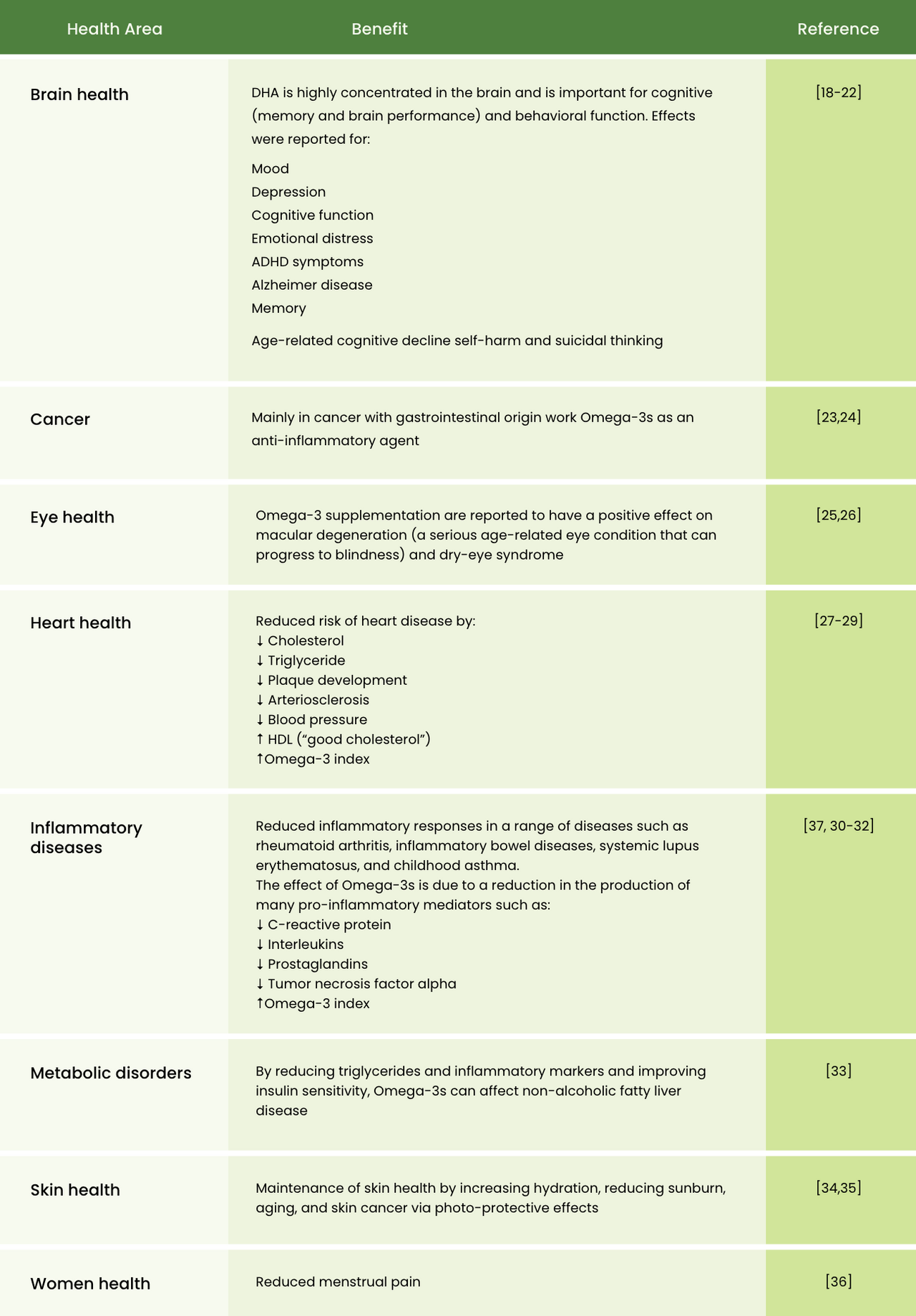


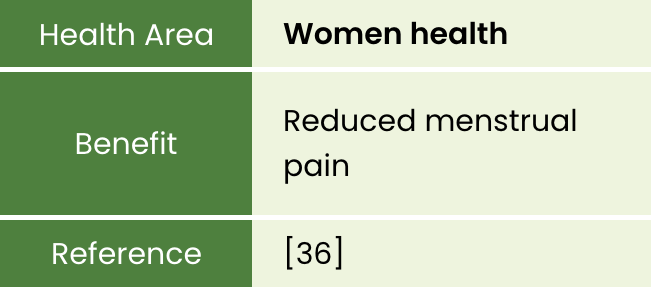

Harvesting
Although krill can survive up to 200 days without food by shrinking and using their body’s bio-material for storing energy in the form of lipids, NKO™ krill uses phosphatidylcholine containing Omega-3 fatty acids as their lipid reserve.
With Flexitech™ technology, harvested NKO™ reduces the TMA/TMAO and salt content of the oil, resulting in a product with a concentrated amount of Omega-3 fatty acids, phospholipids and astaxanthin that is almost taste and smell-free.

The management of krill is also certified sustainable. Krill fishery has been going on for more than 30 years and catches have been stable and low.

While krill oil comes from a sustainable source, krill lives in a very pure environment and is found to be free of contaminants like dioxins, heavy metals, and marine algal toxins.
This new krill oil concentrate holds even more promise in relation to health concerns that are characterized by phospholipid and/or choline deficiency. NKO™ supplementation can help to heal membranes and to optimize Omega-3 fatty acid, phospholipid, and choline status in the body.
The all-in-one advantage of NKO™ delivering simultaneously Omega-3 fatty acids, phospholipids, and choline makes it a superior product in the Omega-3 market.
These statements have not been evaluated by the Food and Drug Administration. This product is not intended to diagnose, treat, cure or prevent any disease.

References
1. Deutsch, L. Evaluation of the effect of neptune krill oil on chronic inflammation and arthritic symptoms. J Am Coll Nutr 2007, 26, 39-48.
2. Banni, S.; Carta, G.; Murru, E.; Cordeddu, L.; Giordano, E.; Sirigu, A.R.; Berge, K.; Vik, H.; Maki, K.C.; Di Marzo, V., et al. Krill oil significantly decreases 2-arachidonoylglycerol plasma levels in obese subjects. Nutr Metab (Lond) 2011, 8, 7.
3. Bunea, R.; El Farrah, K.; Deutsch, L. Evaluation of the effects of neptune krill oil on the clinical course of hyperlipidemia. Altern Med Rev 2004, 9, 420-428.
4. Ulven, S.M.; Kirkhus, B.; Lamglait, A.; Basu, S.; Elind, E.; Haider, T.; Berge, K.; Vik, H.; Pedersen, J.I. Metabolic effects of krill oil are essentially similar to those of fish oil but at lower doses of epa and dha, in healthy volun- teers. Lipids 2011, 46, 37-46.
5. Berge, K.; Musa-Veloso, K.; Harwood, M.; Hoem, N.; Burri, L. Krill oil supplementation lowers serum triglycerides without increasing low-density lipoprotein cholesterol in adults with borderline high or high triglyceride levels. Nutr Res 2014, 34, 126-133.
6. Sampalis, F.; Bunea, R.; Pelland, M.F.; Kowalski, O.; Duguet, N.; Dupuis, S. Evalua- tion of the effects of neptune krill oil on the management of premenstrual syndrome and dysmenorrhea. Altern Med Rev 2003, 8, 171-179.
7. Ramprasath, V.R.; Eyal, I.; Zchut, S.; Jones, P.J. Enhanced increase of Omega-3 index in healthy individuals with response to 4-week n-3 fatty acid supplementation from krill oil versus fish oil. Lipids Health Dis 2013, 12, 178.
8. Eshiginia, S.; Gapparov, M.M.; Soto, K. Influence of phospholipids on efficiency of dietary therapy and parameters of lipids metabolism in patients with hypertension. Vopr Pitan 2005, 74, 28-31.
9. Polichetti, E.; Janisson, A.; Iovanna, C.; Portuga, l.H.; Mekki, N.; Lorec, A.M.; Pauli, A.M.; Luna, A.; Lairon, D.; Droitte, P.L. Stimulation of the apo ai-high density lipoprotein system by dietary soyabean lecithin in humans - a new substrate for the measurement of lecithin:Cholesterol acyltransferase activity. Journal of Nutritional Biochemistry 1998, 9, 659-666.
10. Wojcicki, J.; Pawlik, A.; Samochowiec, L.; Kaldonska, M.; Mysliwiec, Z. Clinical evaluation of lecithin as a lipid-lowering agent. Phyto- therapy Research 2006, 9, 597-599.
11. Jannace, P.W.; Lerman, R.H.; Santos, J.I.; Vi- tale, J.J. Effects of oral soy phosphatidylcho- line on phagocytosis, arachidonate concentrations, and killing by human polymorphonuclear leukocytes. Am J Clin Nutr 1992, 56, 599-603.
12. Zeisel, S.H. Nutritional importance of choline for brain development. J Am Coll Nutr 2004, 23, 621S-626S.
13. Gundermann, K.J.; Kuenker, A.; Kuntz, E.; Drozdzik, M. Activity of essential phospholipids (epl) from soybean in liver diseases. Pharmacol Rep 2011, 63, 643-659.
14. Monteleone, P.; Beinat, L.; Tanzillo, C.; Maj, M.; Kemali, D. Effects of phosphatidylserine on the neuroendocrine response to physical stress in humans. Neuroendocrinology 1990, 52, 243-248.
15. Leyck, S.; Dereu, N.; Etschenberg, E.; Ghyczy, M.; Graf, E.; Winkelmann, J.; Parnham, M.J. Improvement of the gastric tolerance of non-steroidal anti-inflammatory drugs by polyene phosphatidylcholine (phospholipon 100). Eur J Pharmacol 1985, 117, 35-42.
16. Benton, D.; Donohoe, R.T.; Sillance, B.; Nabb, S. The influence of phosphatidylserine supplementation on mood and heart rate when faced with an acute stressor. Nutr Neurosci 2001, 4, 169-178.
17. Ehehalt, R.; Braun, A.; Karner, M.; Fullekrug, J.; Stremmel, W. Phosphatidylcholine as a constituent in the colonic mucosal barrier--phys-iological and clinical relevance. Biochim Biophys Acta 2010, 1801, 983-993.
18. Antypa, N.; Van der Does, A.J.; Smelt, A.H.; Rogers, R.D. Omega-3 fatty acids (fish-oil) and depression-related cognition in healthy volunteers. Journal of psychopharmacology 2009, 23, 831-840.
19. Fontani, G.; Corradeschi, F.; Felici, A.; Alfatti, F.; Migliorini, S.; Lodi, L. Cognitive and physiological effects of Omega-3 polyunsaturated fatty acid supplementation in healthy subjects. Eur J Clin Invest 2005, 35, 691-699.
20. Freund-Levi, Y.; Eriksdotter-Jonhagen, M.; Cederholm, T.; Basun, H.; Faxen-Irving, G.; Garlind, A.; Vedin, I.; Vessby, B.; Wahlund, L.O.; Palmblad, J. Omega-3 fatty acid treatment in 174 patients with mild to moderate alzhei- mer disease: Omegad study: A randomized double-blind trial. Arch Neurol 2006, 63, 1402-1408.
21. Hibbeln, J.R. Depression, suicide and deficiencies of Omega-3 essential fatty acids in modern diets. World Rev Nutr Diet 2009, 99, 17-30.
22. Richardson, A.J.; Burton, J.R.; Sewell, R.P.; Spreckelsen, T.F.; Montgomery, P. Docosahexaenoic acid for reading, cognition and behavior in children aged 7-9 years: A randomized, controlled trial (the dolab study). PLoS One 2012, 7, e43909.
23. Nkondjock, A.; Shatenstein, B.; Maisonneuve, P.; Ghadirian, P. Specific fatty acids and human colorectal cancer: An overview. Cancer Detect Prev 2003, 27, 55-66.
24. Theodoratou, E.; McNeill, G.; Cetnarskyj, R.; Farrington, S.M.; Tenesa, A.; Barnetson, R.; Porteous, M.; Dunlop, M.; Campbell, H. Dietary fatty acids and colorectal cancer: A case-control study. Am J Epidemiol 2007, 166, 181-195.
25. Krishnadev, N.; Meleth, A.D.; Chew, E.Y. Nutritional supplements for age-related macular degeneration. Curr Opin Ophthalmol 2010, 21, 184-189.
26. Liu, A.; Ji, J. Omega-3 essential fatty acids therapy for dry eye syndrome: A meta-analysis.
27. Casula, M.; Soranna, D.; Catapano, A.L.; Corrao, G. Long-term effect of high dose ome- ga-3 fatty acid supplementation for secondary prevention of cardiovascular outcomes: A me- ta-analysis of randomized, placebo controlled trials [corrected]. Atheroscler Suppl 2013, 14, 243-251.
7. Ramprasath, V.R.; Eyal, I.; Zchut, S.; Jones, P.J. Enhanced increase of Omega-3 index in healthy individuals with response to 4-week n-3 fatty acid supplementation from krill oil versus fish oil. Lipids Health Dis 2013, 12, 178.
28. Wang, C.; Harris, W.S.; Chung, M.; Lichten- stein, A.H.; Balk, E.M.; Kupelnick, B.; Jordan, H.S.; Lau, J. N-3 fatty acids from fish or fish-oil supplements, but not alpha-linolenic acid, benefit cardiovascular disease outcomes in primary- and secondary-prevention studies: A systematic review. Am J Clin Nutr 2006, 84, 5-17.
29. Wen, Y.T.; Dai, J.H.; Gao, Q. Effects of Omega-3 fatty acid on major cardiovascular events and mortality in patients with coronary heart disease: A meta-analysis of randomized controlled trials. Nutr Metab Cardiovasc Dis 2014, 24, 470-475.
30. Cleland, L.G.; French, J.K.; Betts, W.H.; Murphy, G.A.; Elliott, M.J. Clinical and biochemical effects of dietary fish oil supplements in rheumatoid arthritis. J Rheumatol 1988, 15, 1471-1475.
31. Harris, W.S. The Omega-3 index as a risk factor for coronary heart disease. Am J Clin Nutr 2008, 87, 1997S-2002S.
32. Harris, W.S.; Von Schacky, C. The Omega-3 index: A new risk factor for death from coronary heart disease? Prev Med 2004, 39, 212-220.
33. Masterton, G.S.; Plevris, J.N.; Hayes, P.C. Review article: Omega-3 fatty acids - a promising novel therapy for non-alcoholic fatty liver disease. Aliment Pharmacol Ther 2010, 31, 679-692.
34. Balbas, G.M.; Regana, M.S.; Millet, P.U. Study on the use of Omega-3 fatty acids as
a therapeutic supplement in treatment of psoriasis. Clin Cosmet Investig Dermatol 2011, 4, 73-77.
35. Rhodes, L.E.; Durham, B.H.; Fraser, W.D.; Friedmann, P.S. Dietary fish oil reduces basal and ultraviolet b-generated pge2 levels in skin and increases the threshold to provocation of polymorphic light eruption. The Journal of investigative dermatology 1995, 105, 532-535.
36. Harel, Z.; Biro, F.M.; Kottenhahn, R.K.; Rosenthal, S.L. Supplementation with Omega-3 polyunsaturated fatty acids in the management of dysmenorrhea in adolescents. Am J Obstet Gynecol 1996, 174, 1335-1338.
37. Calder, P.C. Marine Omega-3 fatty acids and inflammatory processes: Effects, mechanisms and clinical relevance. Biochim Biophys Acta 2015, 1851, 469-484.
